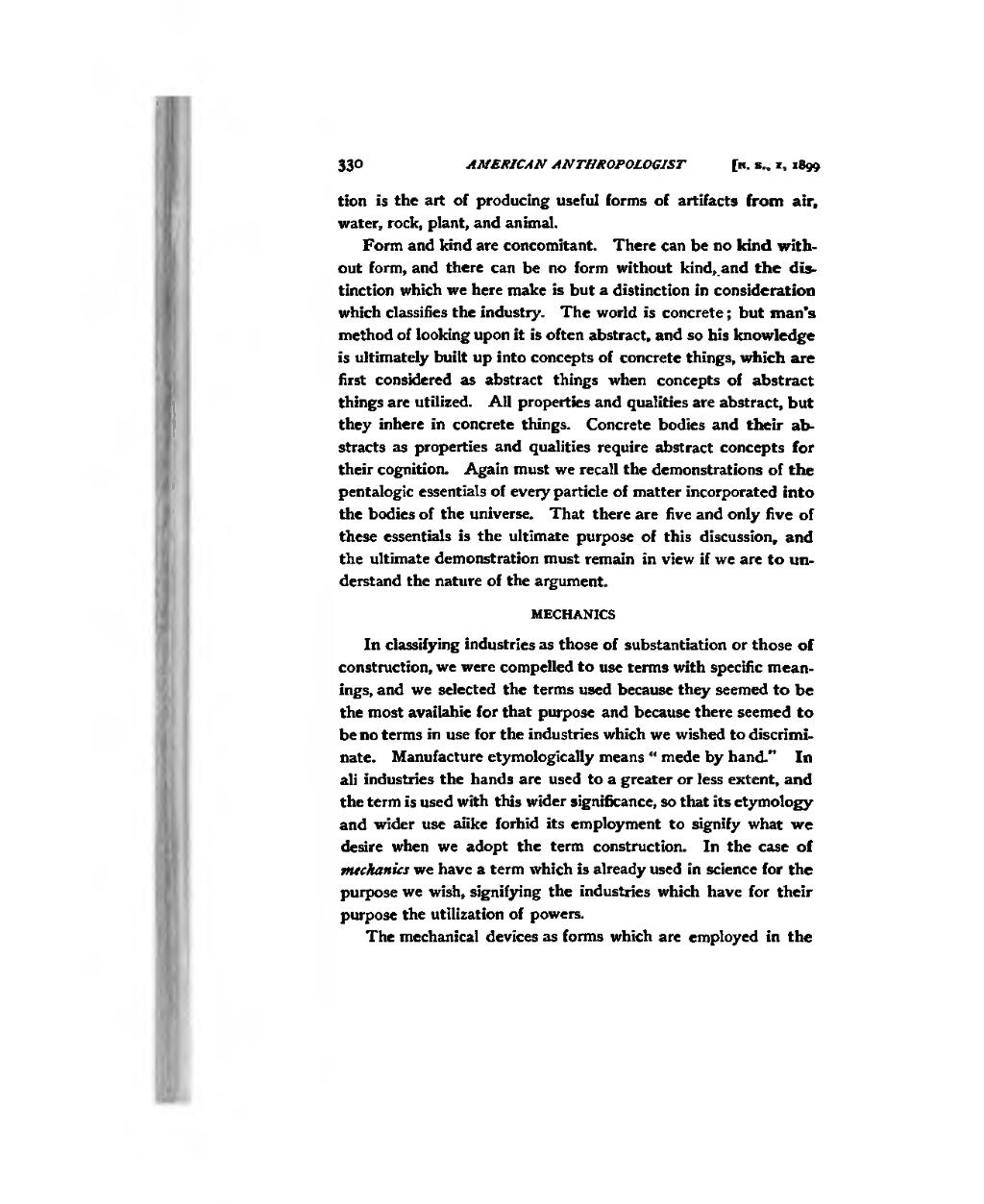33° AMERICAN ANTHROPOLOGIST f>. s., I, 1B99
(ion is the art of producing useful forms of artifacts from air, water, rock, plant, and animal.
Form and kind are concomitant. There can be no kind with- out form, and there can be no form without kind, and the dis- tinction which we here make is but a distinction in consideration which classifies the industry. The world is concrete ; but man's method of looking upon it is often abstract, and so his knowledge is ultimately built up into concepts of concrete things, which are first considered as abstract things when concepts of abstract things are utilized. All properties and qualities are abstract, but they inhere in concrete things. Concrete bodies and their ab- stracts as properties and qualities require abstract concepts for their cognition. Again must we recall the demonstrations of the pentalogic essentials of every particle of matter incorporated into the bodies of the universe. That there are five and only five of these essentials is the ultimate purpose of this discussion, and the ultimate demonstration must remain in view if we are to un- derstand the nature of the argument.
MECHANICS
In classifying industries as those of substantiation or those of construction, we were compelled to use terms with specific mean- ings, and we selected the terms used because they seemed to be the most available for that purpose and because there seemed to be no terms in use for the industries which we wished to discrimi- nate. Manufacture etymologically means " made by hand." In all industries the hands are used to a greater or less extent, and the term is used with this wider significance, so that its etymology and wider use alike forbid its employment to signify what we desire when we adopt the term construction. In the case of mechanics we have a term which is already used in science for the purpose we wish, signifying the industries which have for their purpose the utilization of powers.
The mechanical devices as forms which are employed in the
�� �
